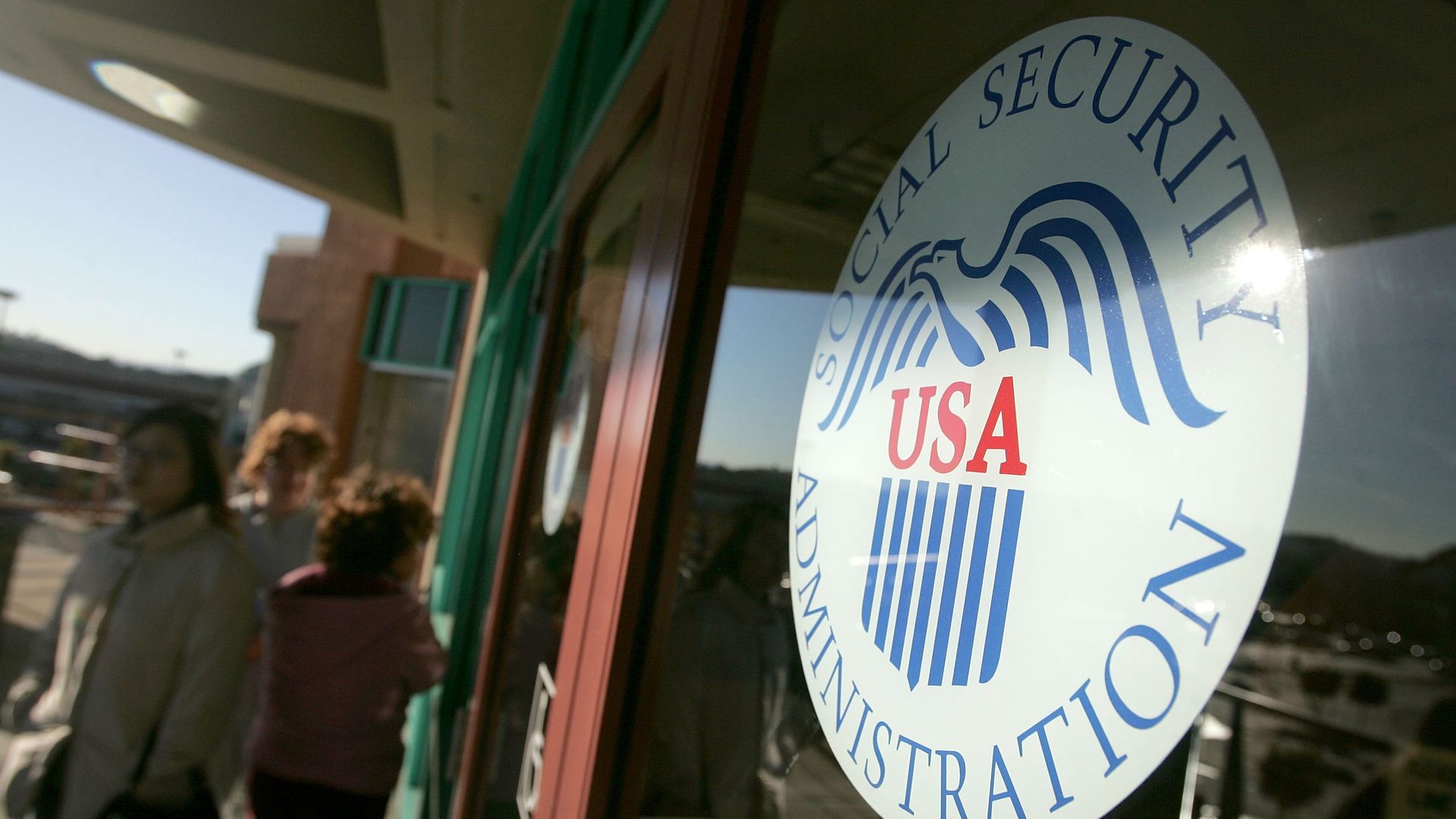Aug 31, 2021 - Politics & Policy
Social security funds could deplete earlier than expected due to pandemic
Add Axios as your preferred source to
see more of our stories on Google.

People line up outside of the Social Security Administration office in San Francisco. Photo: Justin Sullivan/Getty Images
